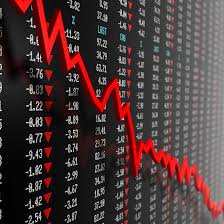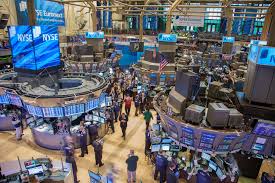
As Chesapeake Energy shares dropped to their lowest price in more than 25 years in trading on Tuesday prompting one investment firm to dump its shares in the company, CEO Doug Lawler issued a statement of confidence.
“Chesapeake continues to strongly believe our current capital and operating program, coupled with the planned 30% reduction in capital expenditures in 2020, will strengthen the financial position of the company for the long term.”
With shares trading as low as 64 cents, Lawler said the company has substantial liquidity with no significant near-term maturities.
” We continue to pursue strategic levers to reduce debt, including asset sales, capital markets transactions, and focus on cost discipline. Additionally, we are de-risking our cashflows through our hedging program and remain confident in our long-term liquidity.”

Lawler’s statement came as as NGP Energy Capital Management, L.L.C. in Dallas informed the company of its intent to make an in kind pro rata distribution of the shares of the company to respective partners of the investment funds. NGP owned 310,818,722 shares in Chesapeake.
An SEC filing by Chesapeake reflected that NGP had made four such transactions: 139,559,070 in one; 13,398,161 in another; 47,042,897 in a third and 110,812,594 in the fourth.
The filing showed the investments had been made by Esquisto Holdings, LLC; WHR Holdings, LLC; NGP XI US Holdings, L.P. and WHE XI US Holdings, L.P.
The distribution of shares was made “with no consideration being paid in connection,” according to the SEC filing.

As Lawler tried to shore up confidence in the company, stock dipped in trading to its lowest level since February 1999. It also meant that “each of the Reporting Persons ceased to be the beneficial owners of more than five percent of the Common Stock” and in essence was an “exit filing” for each.
The bail-out by NGP came a week after Chesapeake Energy reported a wider than expected quarterly loss and warned it was precipitously close to failure.
Still, some analysts contend Chesapeake has options and is not facing imminent bankruptcy. It’s not the first time the company faced serious financial challenges. Before company co-founder and long-time CEO Aubrey McClendon was killed in a traffic crash in 2016, the firm issued statements reassuring investors it was not close to bankruptcy. It also came as McClendon had been indicted on antitrust charges of conspiring to keep land-lease rights low in Oklahoma between 2007 and 2012.






